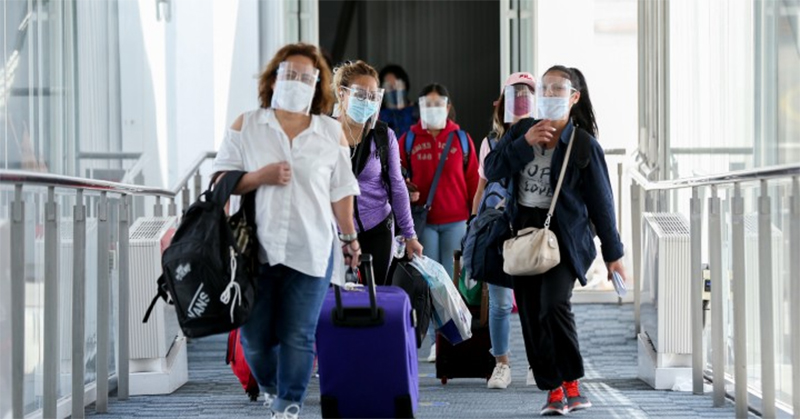The Inter-Agency Task Force has announced that all fully vaccinated inbound travelers who have been inoculated in the Philippines only need to undergo a 7-day quarantine instead of completing the 14-day facility-based isolation.
Presidential spokesperson Harry Roque said the new policy does not cover returning Filipinos and foreign nationals who have been fully vaccinated abroad. They still have to undergo a 10-day facility-based isolation and take a swab test on the 7th day.
For inbound travelers who have been vaccinated in the Philippines, an RT-PCR, or swab test, will only be done if they exhibit flu-like symptoms during their 7-day isolation in a quarantine facility, the Inter-Agency Task Force said.
It added that a person is considered “fully vaccinated” two weeks after having a single-dose vaccine or the second shot for brands requiring two doses. The inbound traveler must carry a vaccination card, which must be verified prior to departure and checked upon arrival in the Philippines.
Asked why the new policy only covers those vaccinated in the Philippines, the Department of Health pointed to “challenges” in the country’s verification system.

Vergeire said one way of addressing this is to have bilateral agreements and coordination with other countries.
In a previous briefing, the agency said there are still some restrictions on fully-vaccinated individuals as the country is still boosting the pace of inoculation. Vergeire said the United Kingdom and the United States have vaccinated 40% and 30% of its population, respectively, so they can afford to remove restrictions.
She added health experts in the country are looking at waiting for the vaccination of 30% of the Philippines’ total population or even 50% of senior citizens before further easing rules on fully-immunized individuals.

Vaccination rollout shows that in the Philippines has already administered a total of 5.18 million shots as of June 1, with 1,206,371 people having completed their second dose since the launch of the national vaccination program in March. The average daily administered doses is now at 144,000.
With additional reports: cnnphilippines.com
Images Sources: northluzon.politics.com.ph, youtube–TheSource, pna.gov.ph






